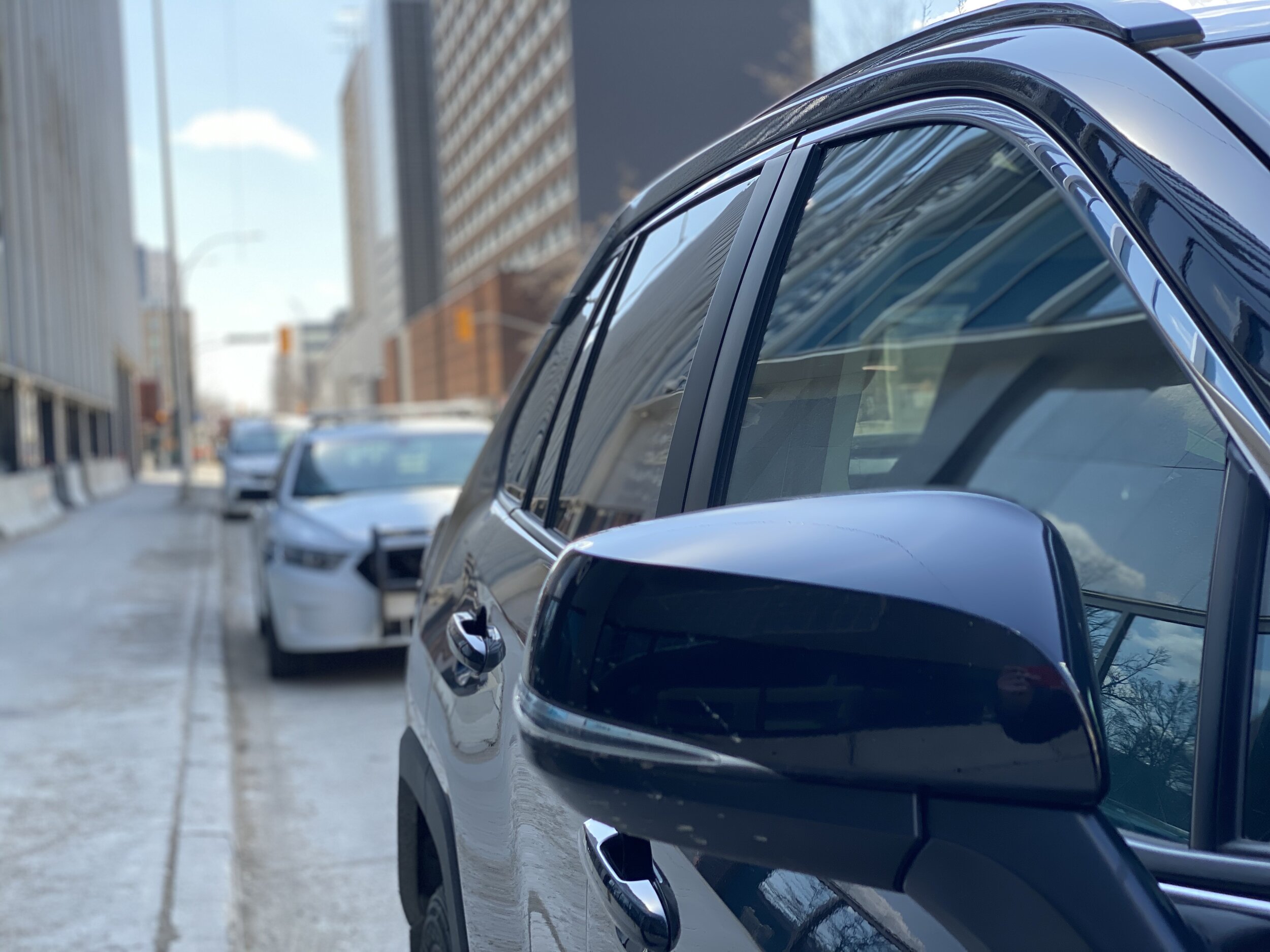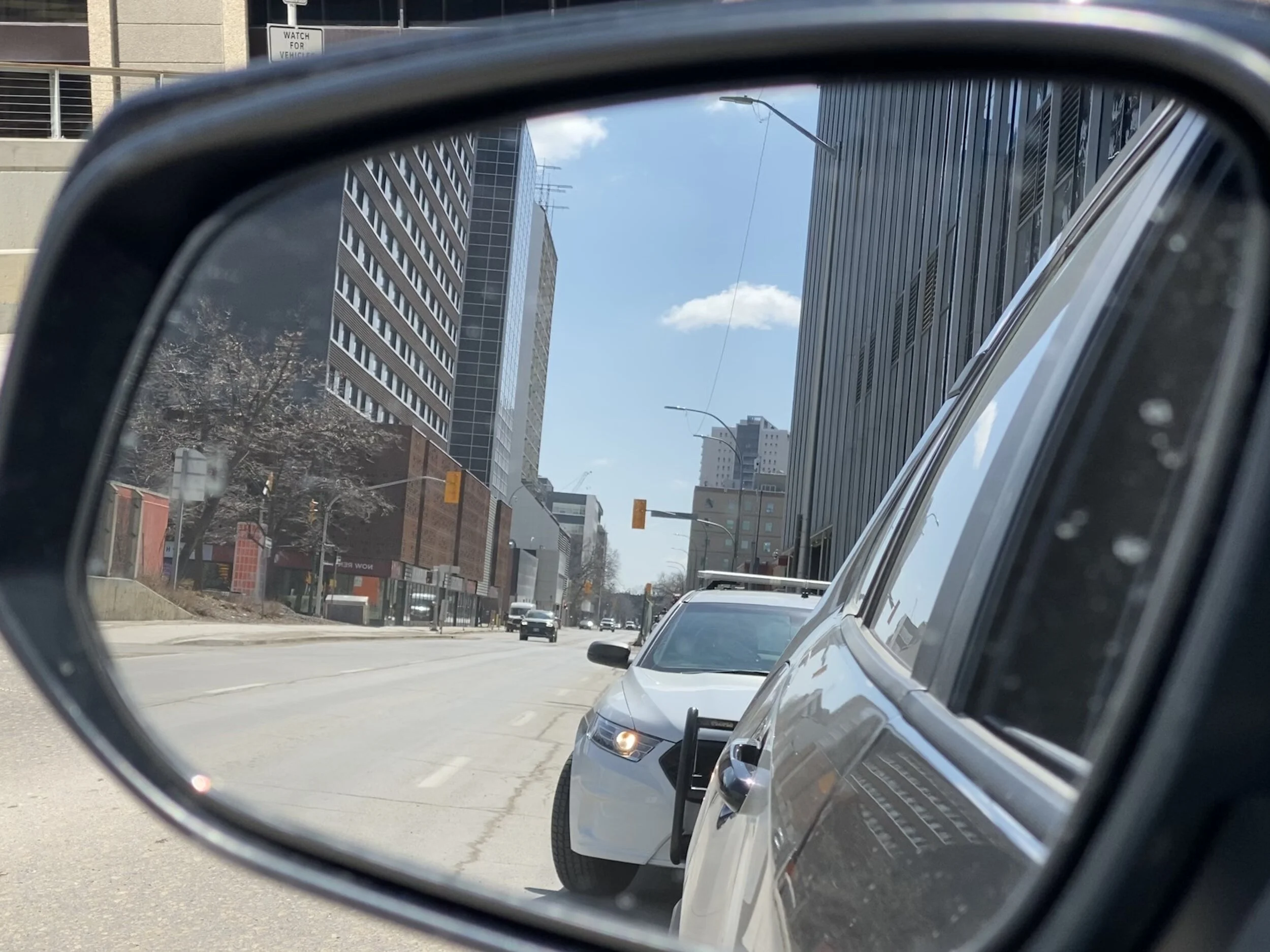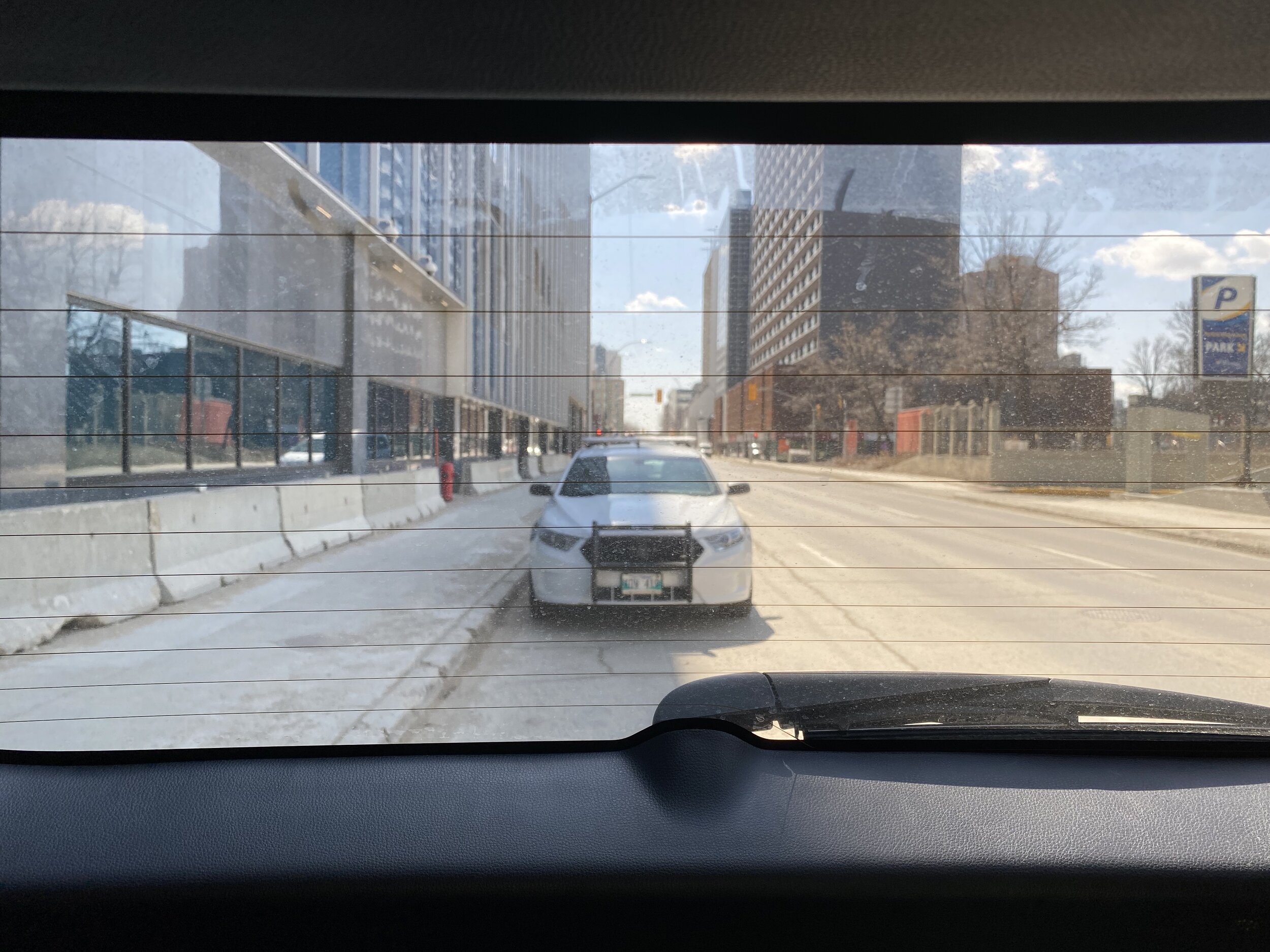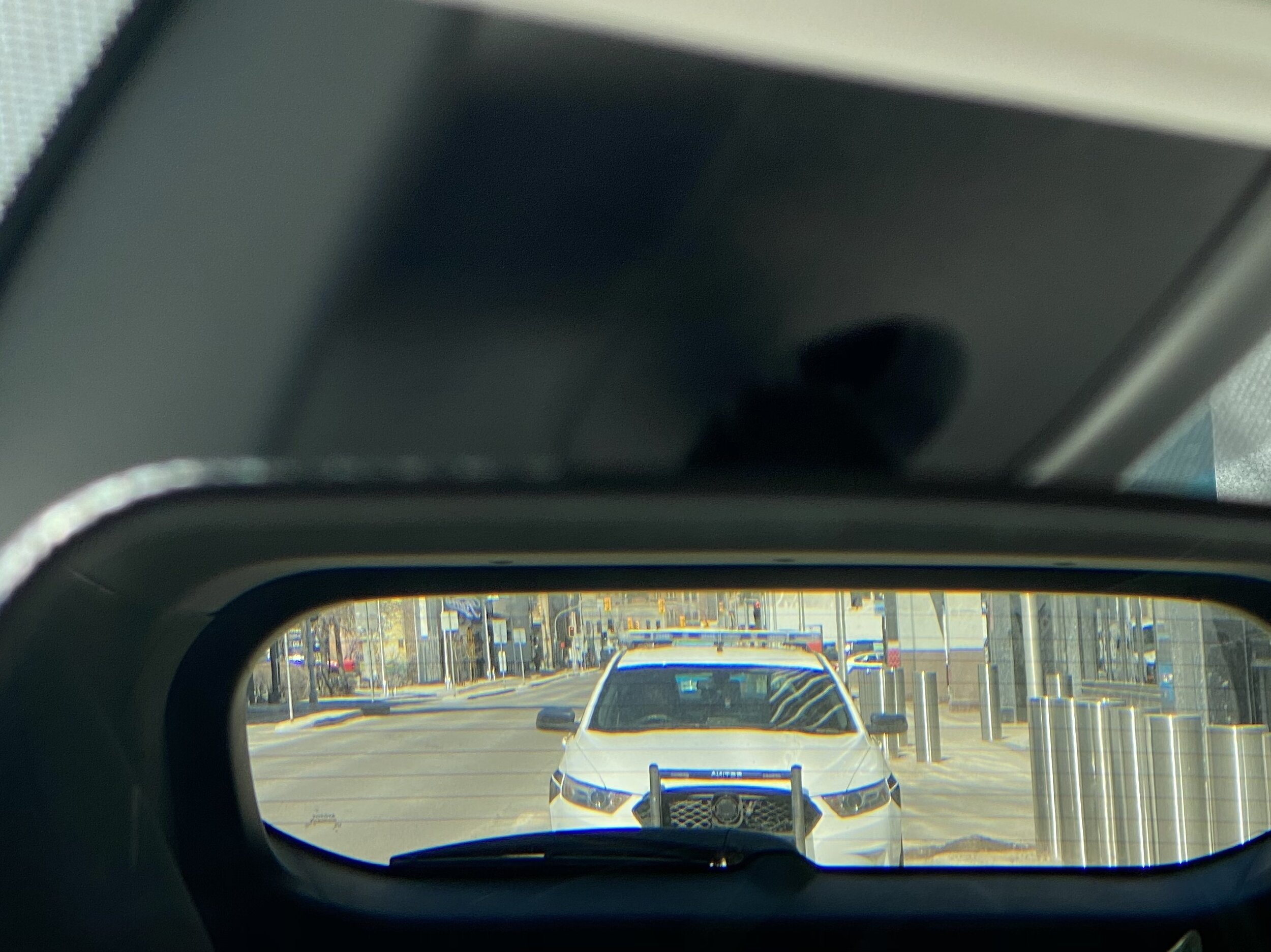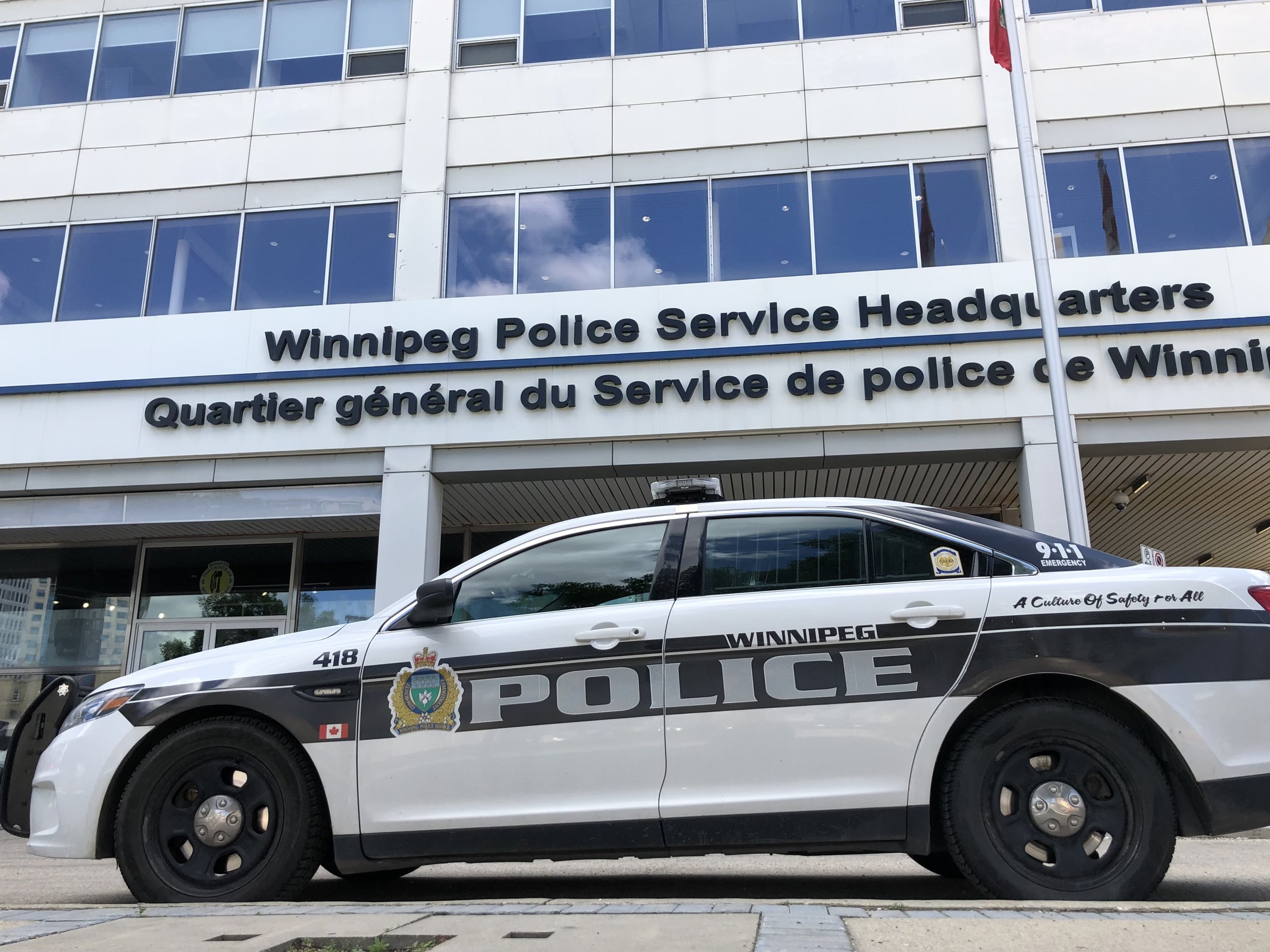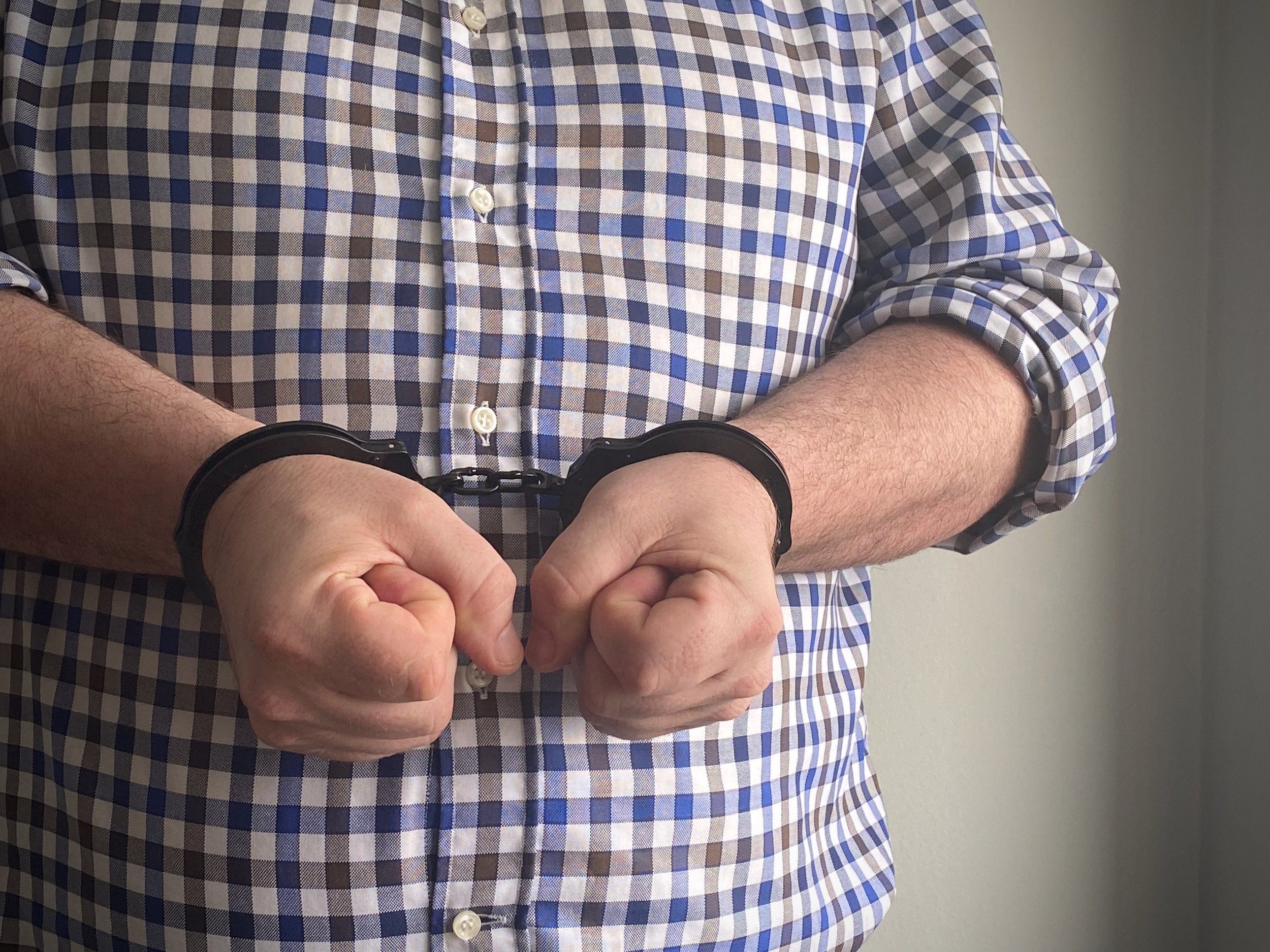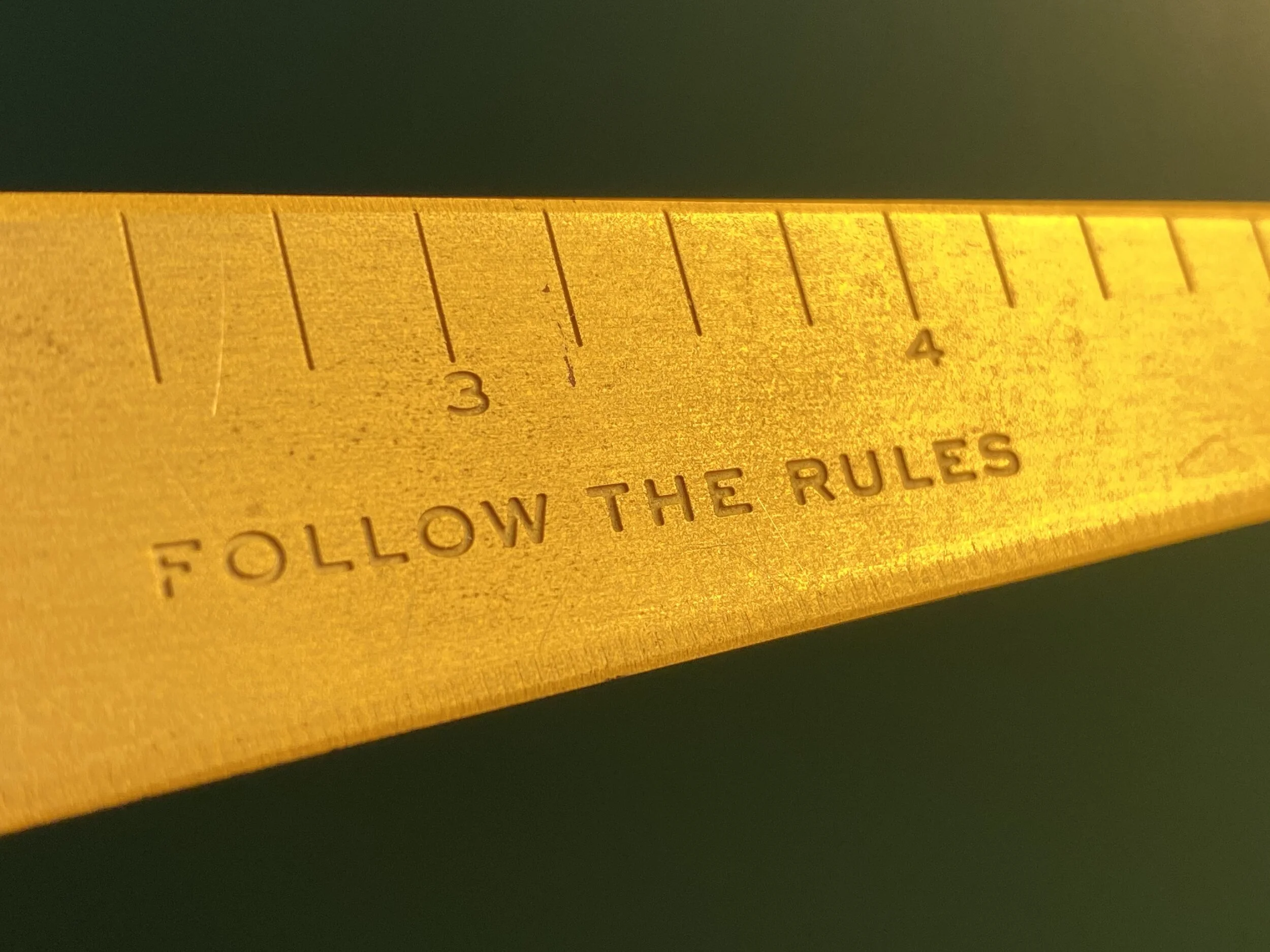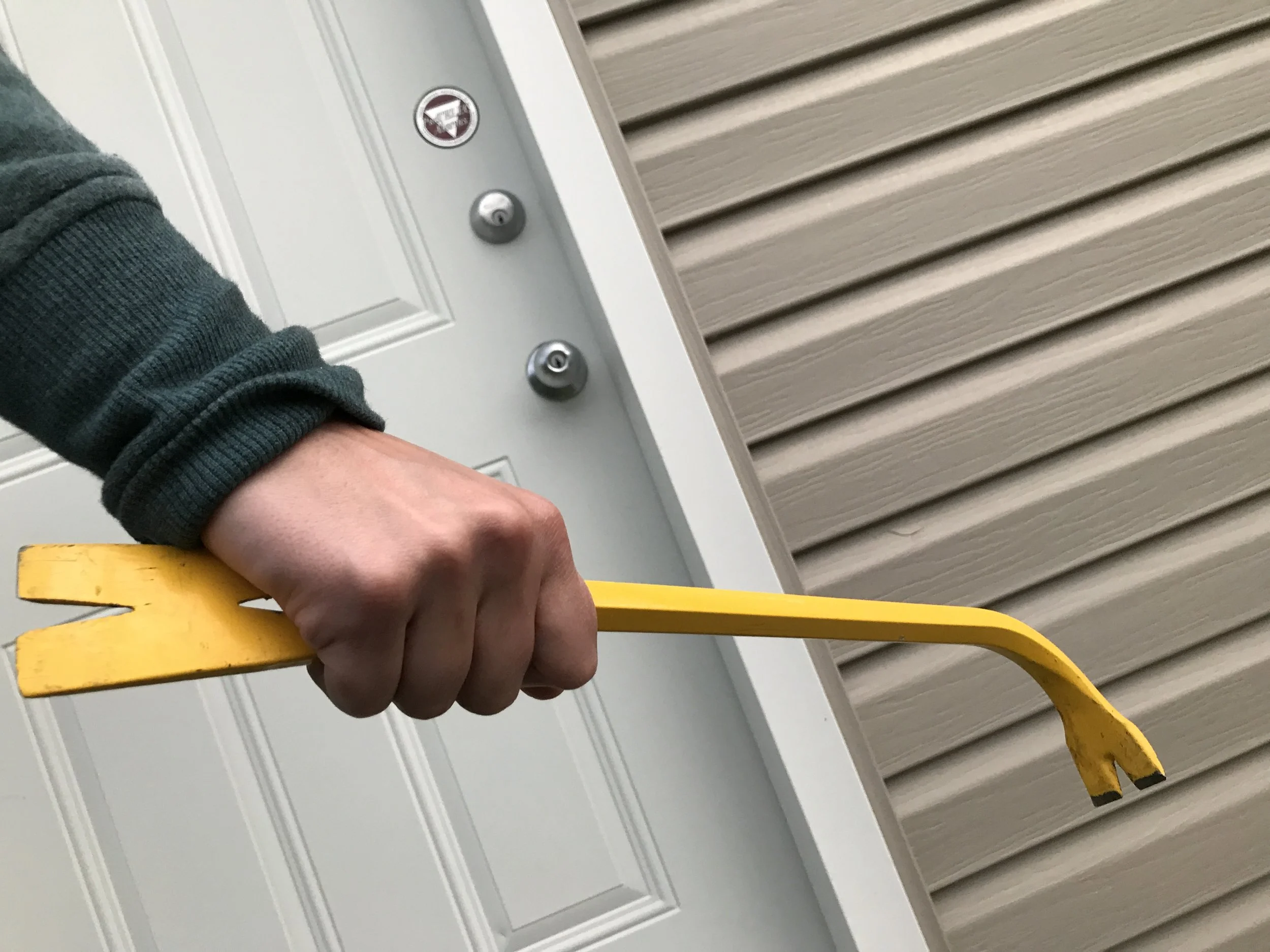What can cops do during a traffic stop?
What am I legally required to do during a traffic stop?
What can an officer do during a traffic stop?
What to say if a cop pulls you over?
What is the police procedure for a traffic stop?
I’m sure these are the types of questions that cross your mind if you’re driving and see a police car is immediately behind you with the lights or siren on. Sometimes you know why the officer is stopping you and sometimes you don’t. In any event, it is helpful for you to know what you can do to both protect yourself and make the process as smooth as possible for everyone.
To get you the best information, most of the tips in this post are from a Winnipeg Police Service officer and a Manitoba RCMP officer. Finally, some of the information is from me, a criminal defence lawyer, so you can also takes steps to protect yourself when you’re pulled over. The information in this post is going to be referring to Manitoba’s Highway Traffic Act. The provincial laws may be different for you, but I think most of the tips here are helpful for all Canadians.
When
is an officer allowed to pull you over?
There are three main scenarios where an officer can initiate a traffic stop or pull you over:
The officer observes you committing a crime that is in the Criminal Code of Canada, like you are driving a stolen vehicle,
The officer observes you committing an offence that is in a provincial regulation, like using a cell phone while driving, or
If you are doing absolutely nothing wrong, but the officer wants to check to see if you have a valid driver’s licence, confirm the vehicle is properly registered, determine your sobriety, or inspect the vehicle to make sure it is safe.
So, even if you are driving perfectly fine, an officer is allowed to initiate a traffic stop to check if you have a valid licence or not. Many police cars have automatic licence plate scanners that can notify the officer if a vehicle is stolen, unregistered, and who the registered owner is. If the owner is female but there is a male driver, the officer may pull the car over to make sure the driver has permission to drive that vehicle.
How
are you supposed to pull over?
The Manitoba Highway Traffic Act s. 76.1(1) says that when an officer is attempting to pull you over, you:
shall immediately come to a safe stop and remain stopped until permitted by the peace officer to depart.
The Criminal Code s. 320.17 says:
Everyone commits an offence who operates a motor vehicle or vessel while being pursued by a peace officer and who fails, without reasonable excuse, to stop the motor vehicle or vessel as soon as is reasonable in the circumstances.
You don’t have to be a legal scholar to understand that once an officer is trying to pull you over, you need to stop right away. This doesn’t mean that you slam your brakes to the floor and veer right without looking. You still need to pull over safely. If you can, pull over to the right and stop within a few seconds. It is more important to stop quickly than it is to stop in an ideal spot.
If you are on a multilane highway, do not stop in one of the passing lanes. Signal and turn into the furthest right lane and then come to a stop on the shoulder or side of the road. You want to drive your vehicle over to the right side of the roadway and as far off the roadway as possible so that you are out of the way of other traffic and can reduce the chances of being struck by another vehicle.
If you're in the median lane and there is grid lock, you can wait for the next exit, turn left on to a side street, and then pull over where it is less busy. If there is a parking lot immediately nearby and that looks like the best option, then head there. Basically, if you see a good spot, then you can head there, but do not continue driving just to look for a good spot to pull over.
In the rare case that there isn't a safe spot to pull over and you have to briefly keep driving, then drive slowly and turn on your 4-way flashers. This will signal the officer that you understand you're being pulled over. In those cases, the officer is performing a continuous risk assessment and will be gauging the driver’s behaviour to interpret their intentions. If you pull over to the right hand side and continue driving slowly, then it can indicate to the police officer that there is no intent to flee, which changes the officer’s risk assessment of the situation and the response.
If there is a perfectly good spot to pull over and you pass by it, the officer may think you're not going to stop at all and it likely the officer will escalated his/her response by calling for back up or maybe even the police helicopter. If it takes too long for the driver to pull over, the police may think that an escape plan is being formulated. Normally, it should be less than 30 seconds between when the officer activates the emergency lights or siren and when your vehicle comes to a stop.
What
should you do right after you stop?
Put the vehicle in park. Turn off the radio or any music that is playing. Leave the vehicle running if you’d prefer that, but you should obviously turn it off if the officer tells you to. Stay in your vehicle unless instructed by the officer. Keep your seat belt on.
Wait as the officer completes some computer checks (vehicle not stolen, valid registration, no warrant for registered owner) before approaching your vehicle. Do not start searching through your vehicle for licence/registration (but know where to find them in the vehicle) because too much movement by a driver may change the officer’s risk assessment. If you don’t have your physical driver’s licence card or registration paperwork in the vehicle, you can tell the officer and they can verify if your licence and registration are active in the computer. The officer can still issue you a ticket for not having the documents with you, so be prepared for that and try to be courteous.
Roll down your window as the officer approaches your vehicle. Do not have your licence and registration in your hand hanging outside the window as the officer approaches (it can come across as rude). If the officer doesn’t immediately tell you why you were pulled over, it is okay to ask, but that shouldn't be the first thing out of your mouth. Try and be polite and courteous and you’ll find most officers will be the same. Having said that, some police officers may sometimes be in an irritable mood. In those cases, it is always a good idea to do your best to be polite and respectful.
If requested by the officer, you MUST tell them your name, birthdate, and address and/or provide your licence and registration documents. There are several subjects that the officer is allowed to ask you about that you DO NOT have to answer. If the officer asks you any of these questions, you can simply say “no comment.”
Have you consumed any alcohol or drugs prior to or while you were driving?
Are you experiencing a physical or mental condition that may affect your driving ability?
Any questions about the vehicle’s mechanical condition (e.g. did you know the tint on your windows is not legal?)
The officer may ask you where you are coming from, where you are going, or what brings you to the area. You can answer those questions, but I would not tell the officer that you are coming from a place that sells alcohol or cannabis products. Trying to come up with a lie on the spot is also a bad idea, so you can simply say “no comment.” If you are not transporting those things legally, the officer can issue you a ticket for improper storage. To learn more about how to transport alcohol properly, click here. To learn more about how to transport cannabis properly, click here.
Try not to fidget or reach for items in the car unless the officer tells you to get something.
If the officer tells you that you were pulled over for not using a left turn signal and you still appear really nervous, the officer may start paying attention to other details to determine if a drug or weapons investigation should begin.
If the officer asks a passenger a question, let the passenger answer it. Under s. 76.1(5) of the Highway Traffic Act, a passenger ONLY has to provide his or her name, birthdate, and address to the officer.
Blow
into the roadside test machine
After major updates to the Criminal Code in December 2018, police officers are allowed to demand a roadside breath test and force drivers to do it if the officer has an approved screening device (ASD) with him/her. The officer doesn’t have to smell alcoholic drinks on your breath or get you to admit you’ve been drinking. If you tell the officer “no” or if you do not provide a breath sample properly, you can be charged with a criminal offence, commonly called “a refusal.” The punishments for refusal are the same (or worse) for an impaired driving charge or driving at/over the limit of 80 mg%. For more information about how this works and what you need to do for roadside breath tests, please click here.
Wait
I want to call my lawyer!
During a traffic stop, you DO NOT have the right to speak to a lawyer. In fact, s. 76.1(6) says:
A peace officer is not required to inform a driver or passenger of his or her right to counsel, or to give the driver or passenger the opportunity to consult counsel, before doing anything subsection (4) or (5) authorizes.
However, if the officer places you under arrest for a criminal offence (e.g. possession of stolen property, driving while impaired, possession of drugs), then your right to counsel under s. 10(b) of the Charter of Rights and Freedoms is engaged. The officer must tell you about your right to contact a lawyer and then ask if you would like to do so. At that point, you should tell the officer you would like to talk to a lawyer and you can request to speak with me, Michael Dyck.
Related articles
MAJOR UPDATE: Cell Phones and Driving in Manitoba (August 2018)
Preventing a Break and Enter in Your Home: Tips From a Criminal Defence Lawyer
About the author
Michael Dyck is a partner at Rees Dyck Rogala Law Offices. He represents clients primarily from Winnipeg, Steinbach, and rural Manitoba. He has extensive experience helping people charged with criminal offences and focuses on building legal strategy with clients.
